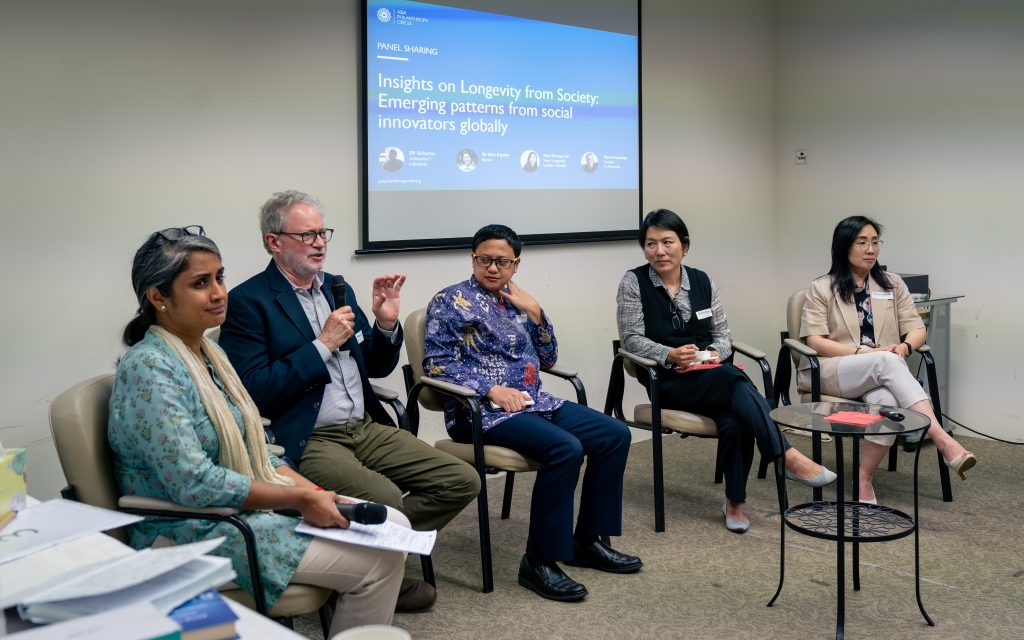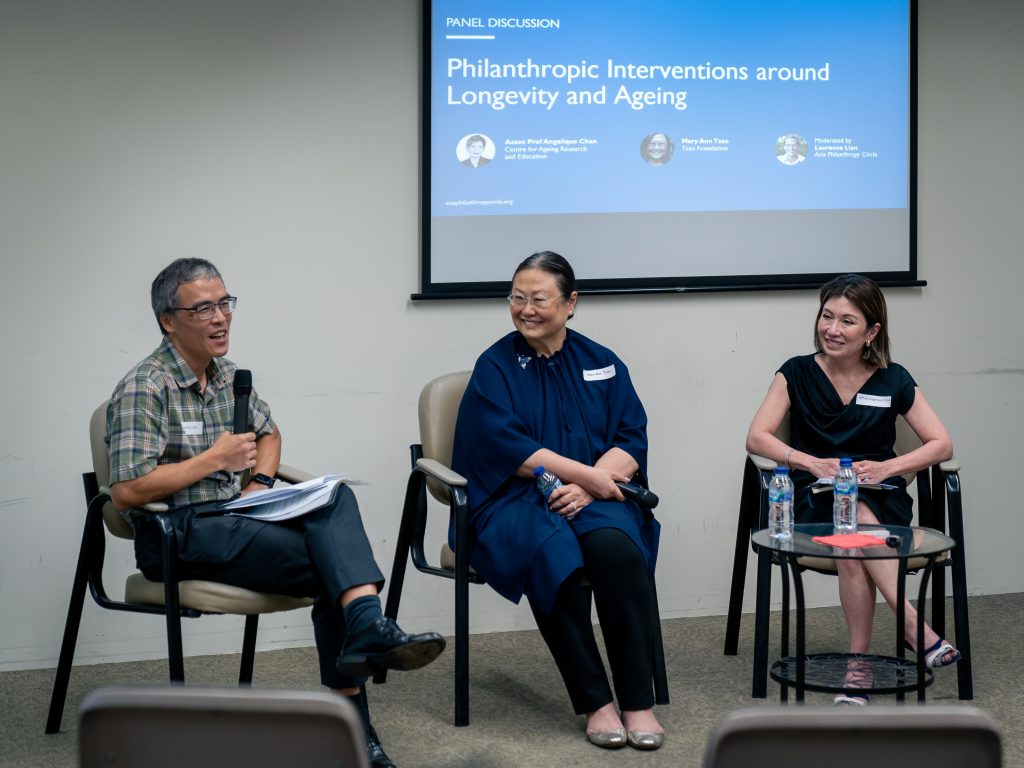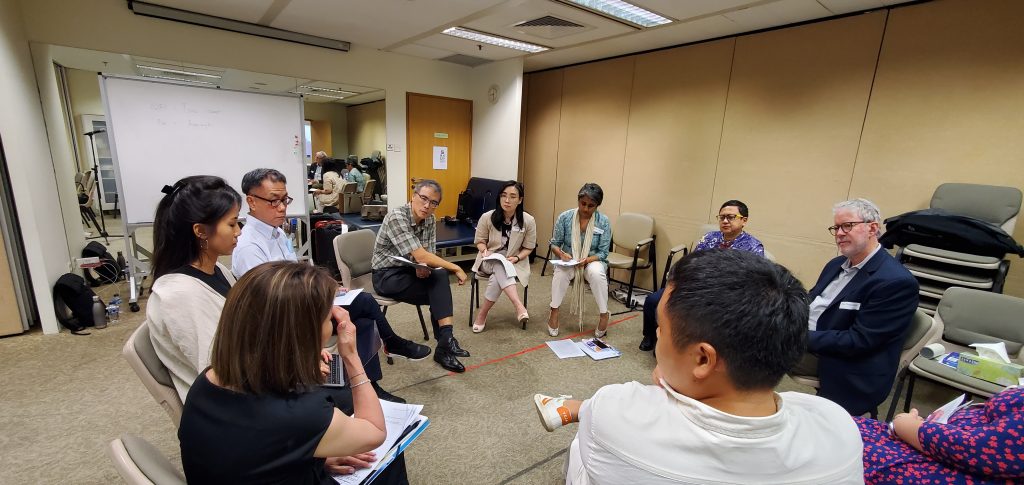How can we build systems that support and enable older people to live well with purpose and dignity, and remain relevant to society?
BY THERESA CUA

The world is greying.
Asia-Pacific will likely see the fastest increase in older-populations—likely to triple between 2010 and 2050. Thus, there is a need to examine how this demographic shift will affect the very fabric of society, and whether our present structures enable people to live not just longer—but live well, with purpose and dignity.
Along this thought, APC and the Tsao Foundation hosted APC members, social innovators from Ashoka, and experts who are working in longevity and healthy ageing to share about their work, highlight where gaps exist, and hopefully spark ideas where philanthropy can play a role. Many of our members are quite interested in issues around longevity, already working on programmes around eldercare—from APC’s own Assisted Living Facility, to advocacy programmes, research, palliative care, and even addressing attitudes towards death and dying.
During the session, some very interesting thoughts came about. Medical advancements, for example, have enabled people to live longer, but not necessarily better. Today, people living past 100 are becoming more common—my own grandmother at the time of writing is turning 94 this year—but the policies and systems in place have not caught up to this new average lifespan. (Side note: to demonstrate this point, Singapore has moved past 60 years as its average life expectancy since 1954!) Insurance, retirement policies, and social paradigms are still built around the average lifespan of 60—what happens now to the extra 40 years that people are now living?

Assoc Prof Angelique Chan from the Centre for Ageing Research and Education at the Duke-NUS Medical School (Singapore) also shared some conclusions from her own research, highlighting social determinants that affect how well we live in old age that need more attention:
- Social support and networks – social isolation and loneliness continue to be pervasive issues faced by the elderly, spurring increased risks in depression, mental decline, and disease. More attention is needed towards creating opportunities for community building and inter-generational engagements;
- Living arrangements – ageing at home versus in nursing homes affect one’s sense of identity, as one grows increasingly tied to ‘home’ as one gets older;
- Financial security – present retirement policies favour formal employment and lacks accommodation for alternative arrangements—such as women dropping in and out of jobs due to caregiving expectations, or even the rise of the informal and ‘gig’ economy;
- Personal mastery – older people with higher levels of independence, agency, and choice over life matters tend to be less lonely, and more resilient;
- Gender – ageing affects men and women differently, such as men being more vulnerable to isolation, while women tend to have less financial security in old age due to existing social structures.
What else for philanthropy? Much resources have indeed been poured into bio-medical advancements that have prolonged our life, but the longer road ahead remains around shifting entrenched mindsets, re-examining our present policies and structures, and planning interventions that address these social determinants to enable all of us to live meaningfully as we age.

Members discussed several roles for philanthropy: advocacy campaigns for the greater public and government to shift the idea that the elderly are “burdens to society” and are recipients of care, to viewing the elderly as a wealth of knowledge and experience; and leveraging influence as philanthropy is best-positioned to connect grassroots initiatives with decision-makers.
As an area of strong interest amongst APC members, the discussion around longevity and ageing will continue—do share your ideas and areas you would like to explore more with other members as the team plans further engagements around this issue. Eventually, we will all reach the “elderly” phase—shaping a future where all members can contribute productively, age with dignity, and retain agency will affect not just one segment of society, but give all of us a better horizon to look forward to as we move, ever-so-slowly, closer to our sunset years.
